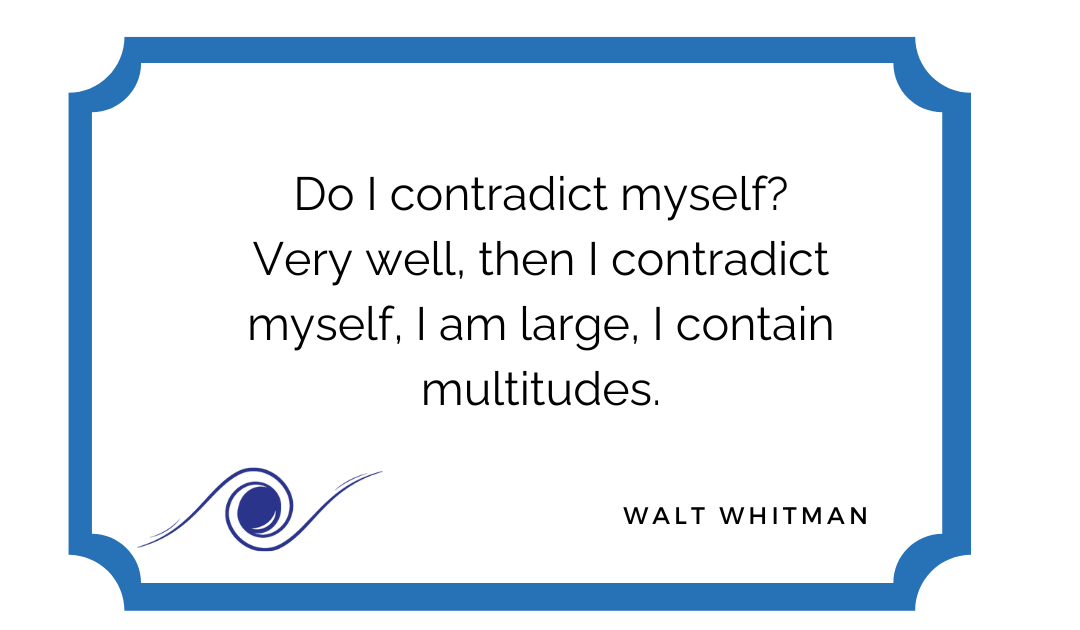Nature is full of contradictions. Just look at the giraffe, for crying out loud!! What a lovely ensemble of elegance and awkwardness, of practicality (for reaching leaves in trees) and impracticality (for drinking at a waterholes). There is a syntony in this dance of improbability and possibility, of fantasy and actuality. Were nature to consist of only highly coherent beings and processes, we would be surrounded by a narrow spectrum of highly efficient but quite unimaginative expressions of life — boring, useful, and not much fun. Instead, nature dances … and is full of humor!
And that’s the fun of contradictions. They are healthy, provided one doesn’t take them too far… but that goes for just about anything, including eating fruit or taking medicine. An excess of anything is, well, excessive. But to change one’s mind, to sense something differently, to feel that something has changed … this is necessary for evolution to take place. After all, if nothing changes, you’re as good as dead.
Nevertheless, it is important to distinguish between contradiction and hypocrisy. Contradictions are fine (within limits, as mentioned); hypocrisies are not. While a contradiction involves the opposition of contrasting elements that often appear to cancel each other out, a hypocrisy involves knowing and willful deception through the premeditated presentation of one thing as something else. That ain’t good, no matter how you slice it. Contradictions are usually innocent and inoffensive, whereas hypocrisies almost always aren’t.
David Zindell, in his wonderful science fiction book The Broken God, writes of how “One can never become multiplex if afraid of paradox or enslaved by the god of consistency. Multiplex vision is paradoxical vision, new logics, the sudden completion of startling patterns” (Zindell, David. The Broken God. Bantam, 1994. Pp. 112). I think Walt Whitman would agree.

